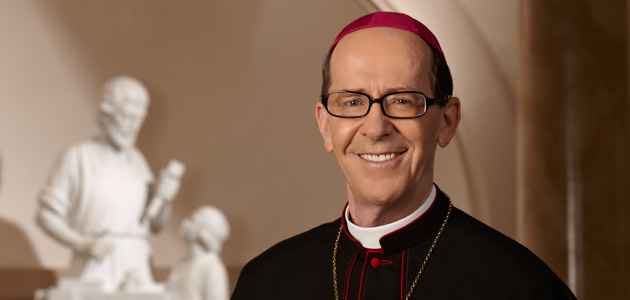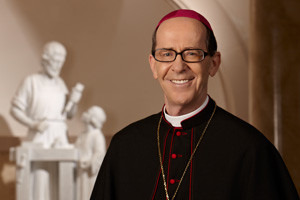

Scandal is not a happy topic. It is fodder for gossip and fuel for rumors. It is a favorite of modern media and a weapon in decadent politics. But scandal, even if enticing to the curious mind, cannot make the heart sing. It weighs down the human spirit. It leads a person towards hell.
Not all that is called “scandal,” however, is indeed so. On the other hand, some things that cause grievous scandals are hailed as “rights,” are approved by many and are even extolled in a dictatorship of relativism.
The Lenten Season, and especially Palm Sunday and Good Friday, provide us rich food for thought on the question of what does and does not constitute scandal in this world burdened by sin. It also shows us how to fight scandal and to be faithful witnesses to Christ and to His holy cross.
The ‘scandal’ of the Cross
St. Paul, with his usual candor, states quite emphatically (1 Cor 1:18-25): “The message of the cross is complete absurdity to those who are headed for ruin, but to us who are experiencing salvation it is the power of God… Yes, Jews demand ‘signs’ and Greeks look for ‘wisdom,’ but we preach Christ crucified — a stumbling block to Jews, and an absurdity to Gentiles; but to those who are called, Jews and Greeks alike, Christ the power of God and the wisdom of God. For God’s folly is wiser than men, and His weakness more powerful than men.”
Personal experience as a teacher of the Gospel of Christ made St. Paul keenly aware that the cross of our Redeemer was a “stumbling block” (skandalonin Greek) for most of his listeners. They were “scandalized” by the horrific suffering and violent death of Jesus of Nazareth, and even more “scandalized” by Jesus’ words (Mk 8:34-35), “If a man wishes to come after me, he must deny his very self, take up his cross, and follow in my steps. Whoever would preserve his life will lose it, but whoever loses his life for my sake and the Gospel’s will preserve it.”
This “scandal” of the Cross seems initially to have caused the great Apostle to the Gentiles to have second thoughts about speaking of the cross of Christ in his efforts of evangelization. However, he came to see that it is an act of charity to throw a stumbling block on the path of any person whose life is headed towards eternal destruction.
The Good News of Christ crucified
Humbled by apparent failure in his preaching efforts in various places before arriving in Corinth, and yet with renewed conviction that the cross and Resurrection of Jesus stand at the heart of the Gospel, St. Paul wrote (1 Cor 2:1-2), “As for myself, brothers, when I came to you I did not come proclaiming God’s testimony with any particular eloquence or ‘wisdom.’ No, I determined that while I was with you I would speak of nothing but Jesus Christ and Him crucified.”
It was this pastoral plan of the Teacher of the Gentiles that proved to be the most effective in bringing people to place their trust in God and to believe in the Gospel. Why was this so? What made the message of the Cross, which seemed like a scandalous event to many, such a treasure for those who eventually put their trust in Christ?
It could be that the seeming “scandal” of the cross, when seen in its true glory and wisdom, opened the eyes of new believers to the real “scandals” that abounded all around them and that were not recognized as such until the wisdom of the cross was revealed. After all, the city of Corinth, where St. Paul first focused his evangelizing efforts entirely on the cross, was mired in moral depravity and teeming with pagan cults that exalted scandalous behavior instead of promoting virtue. It was only the message of the cross of Christ that cut through this web of deception and freed people to build their lives on the solid foundation of the truth.
What is scandal?
We read in the Catechism of the Catholic Church(#2284: “Scandal is an attitude or behavior which leads another to do evil. The person who gives scandal becomes his neighbor’s tempter. He damages virtue and integrity; he may even draw his brother into spiritual death. Scandal is a grave offense if by deed or omission another is deliberately led into a grave offense.”
True scandal harms others; it places before them a bad example or deceptive words that lead them to stumble into sin, to choose the path to vice, to avoid the path to virtue. Scandal finds its source in the devil, whom Jesus calls “the father of lies.” No title could be more appropriate for Satan since all his temptations are aimed at deceiving men and women.
On the other hand, Jesus reveals the full truth of God’s love, especially through His cross and Resurrection. The fact that this greatest of truths seems scandalous to those whose hearts are set on this world demonstrates how much harm sin has done to the human mind, and how greatly it has confused the human heart. It is also a startling but crucial reminder of our need as followers of Christ crucified to draw ever nearer to Him and to ask Him to conform our minds and hearts to His.
In the next part of this series, we shall continue this exploration of scandal, looking at major agents of scandal in our present day; then we shall consider key ways to counteract scandal and to invite people to discover the wisdom of the cross.





![[VIDEO] Make Sunday feel like Sunday again](https://www.catholicsun.org/wp-content/uploads/2021/04/2021-YOUTUBE-BISHOP-MESSAGE-THUMBNAIL-ENGLISH-218x150.png)